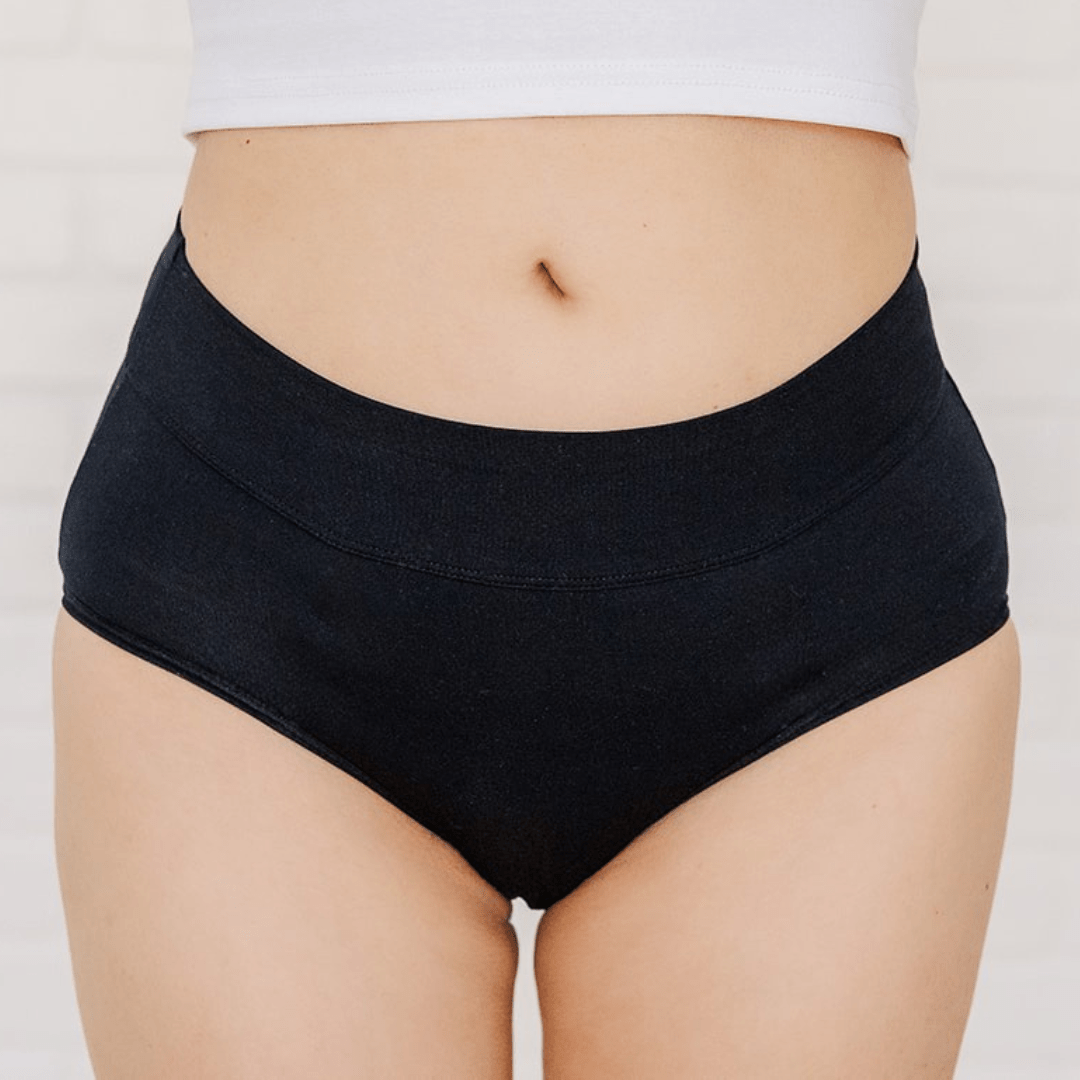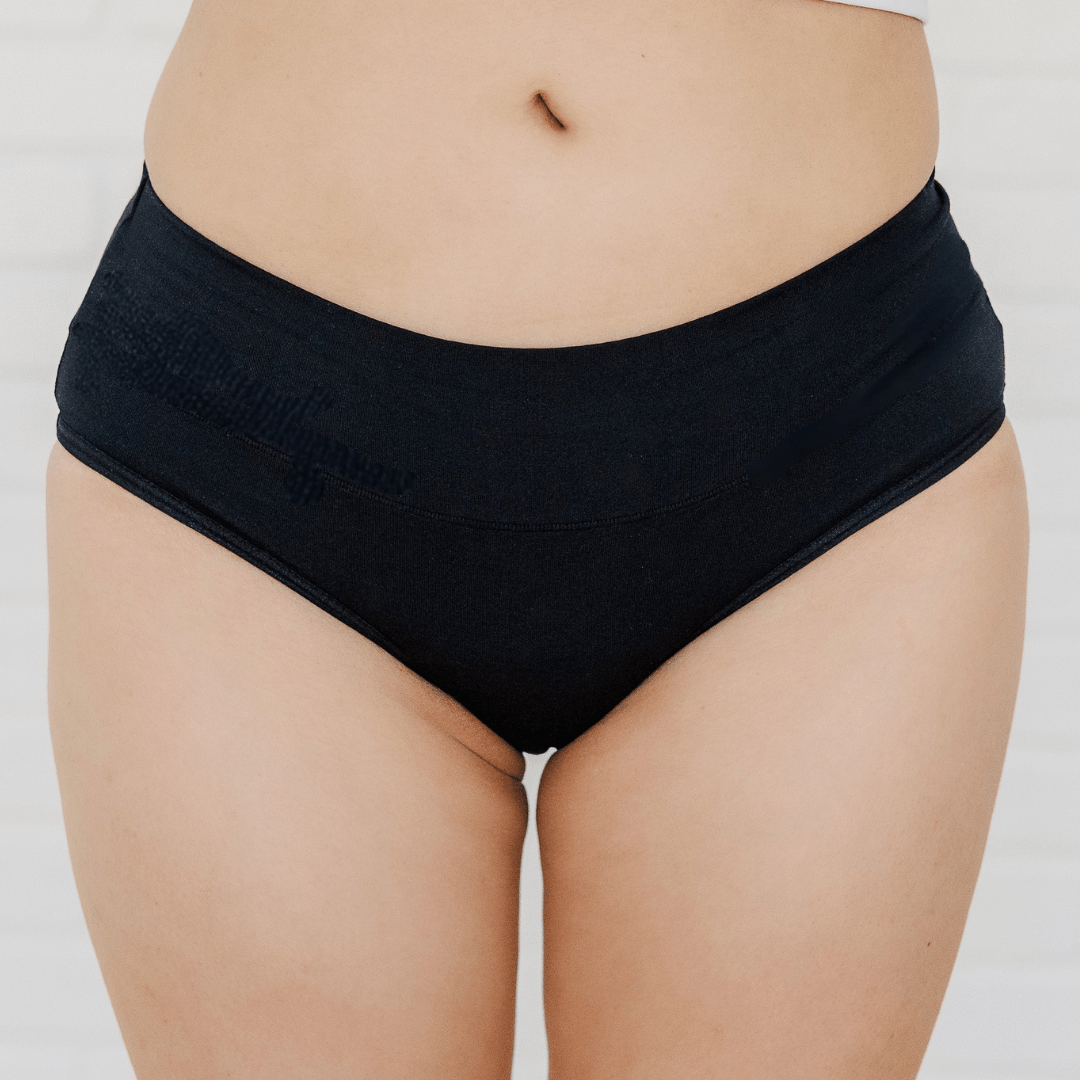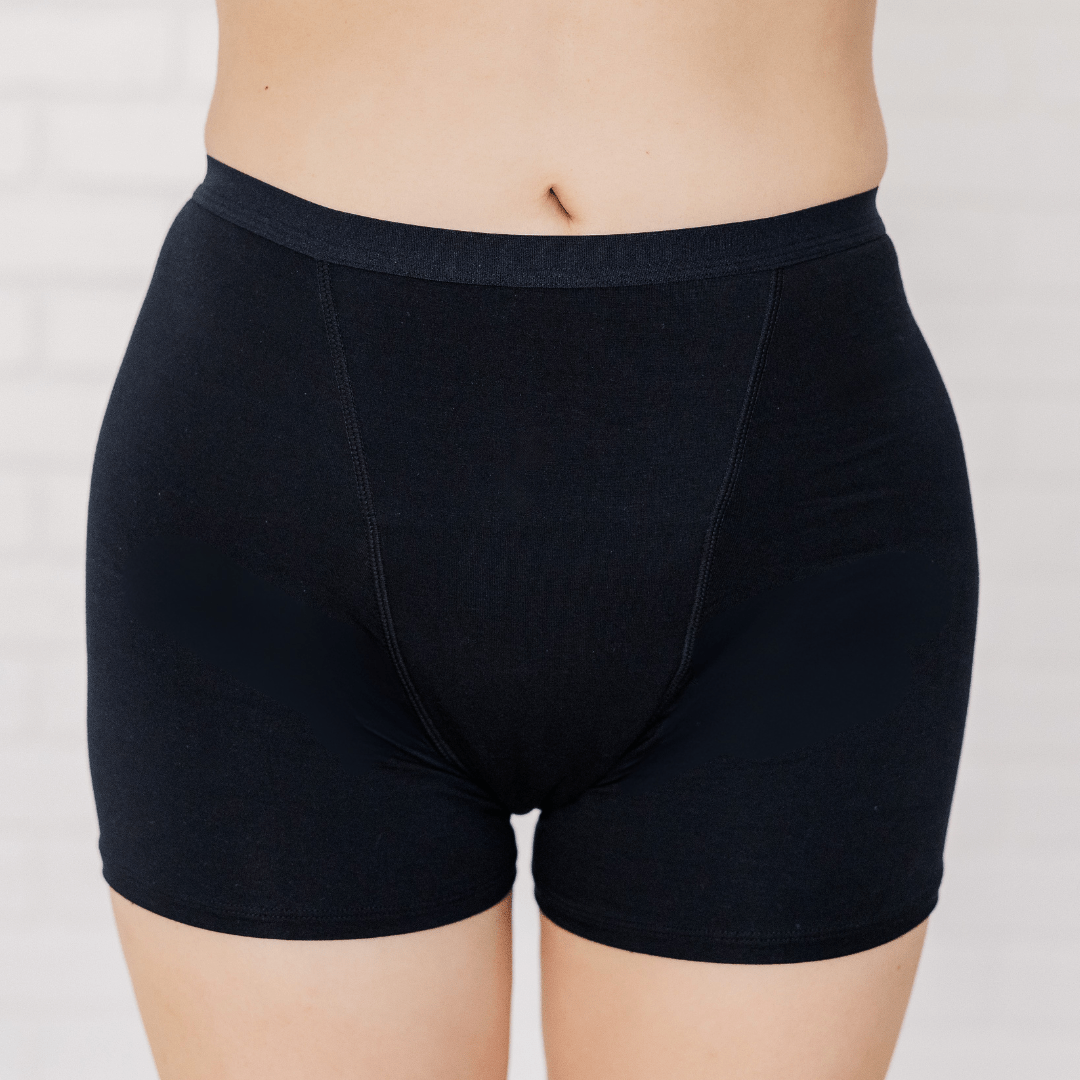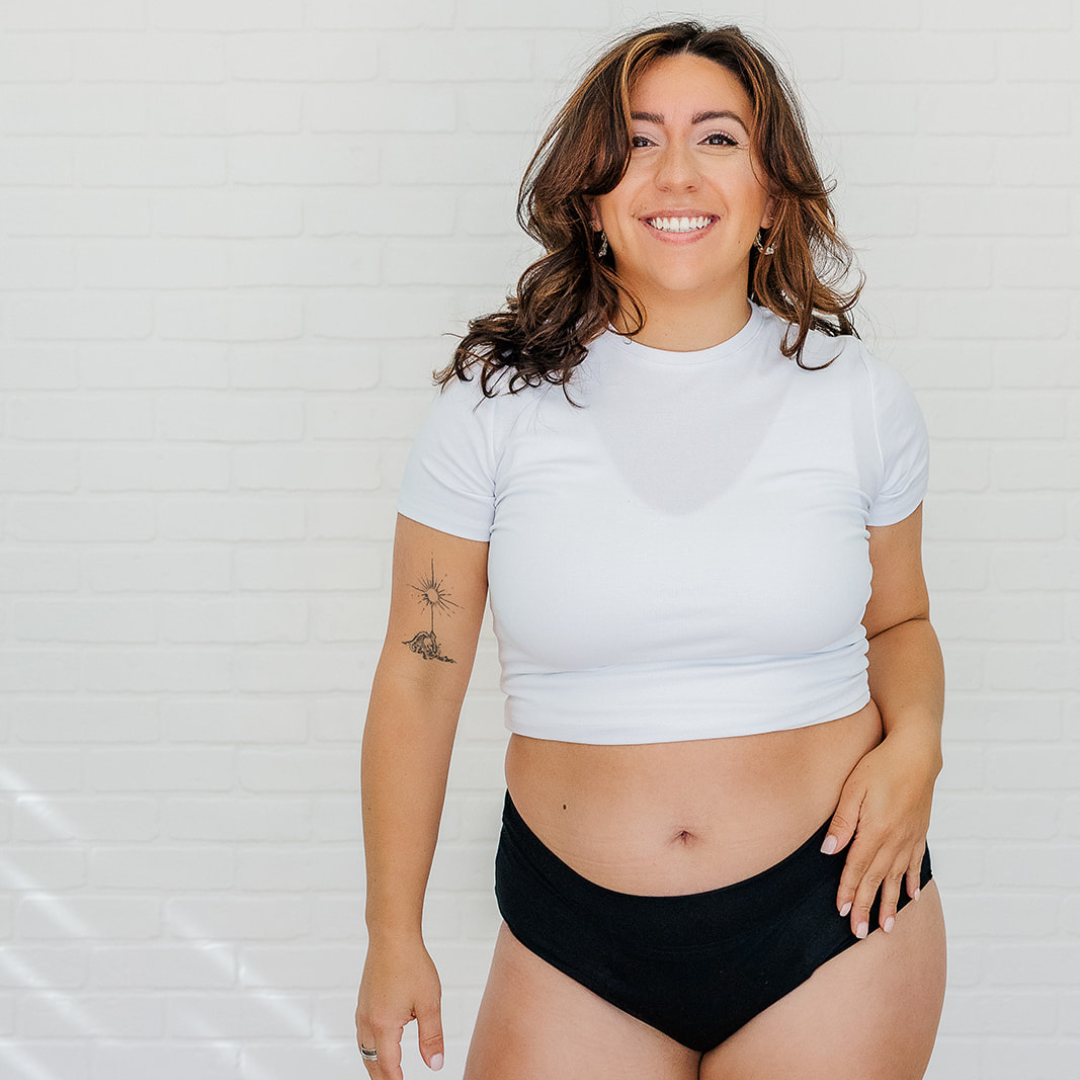Is your back ache period pain?
Back ache is a common complaint, affecting about 72% of people who experience period pain.
But why do so many people experience back pain before and during their periods?
THE SCIENCE
Menstrual-related back pain typically stems from the same processes that cause your regular period pains. During your period, the uterus contracts to help expel its lining. These contractions are triggered by hormone-like substances called prostaglandins. Higher levels of prostaglandins can lead to more intense uterine contractions and therefore more pain.
Because the uterus is so close to your lower back muscles, this pain can radiate to your back. Ouch.
WAIT, THERE’S MORE?
Several other factors also contribute to that period back ache:
1. Hormonal Changes: Fluctuations in estrogen and progesterone levels can affect the musculoskeletal system, leading to increased sensitivity to pain and discomfort in the lower back.
2. Water Retention: Hormonal changes during the menstrual cycle can cause your body to retain water, leading to bloating and increased pressure on the lower back.
3. Postural Changes: Some report unconsciously altering their posture to cope with abdominal cramps, which in turn can lead to strain and discomfort in the lower back. This seems like an unfair side-effect if you ask is!
4. Stress and tension: The menstrual cycle can be a stressful time, and stress can lead to muscle tension, including in the lower back.
WE’VE GOT YOUR BACK
There are a number of effective strategies for managing and alleviating back pain caused by your cycle. Here are some of our best tips:
1. It’s getting hot in here
Applying heat to the lower back can help relax tense muscles and reduce pain. Use a heating pad, hot water bottle, or take a warm bath to ease discomfort. Heat increases blood flow to the area, which can help reduce pain and muscle spasms.
2. Exercise and stretching
Regular physical activity can help reduce menstrual-related back pain. Gentle exercises like walking, swimming, and yoga can increase blood flow and reduce muscle tension. Specific stretches that target the lower back, such as Child’s Pose (Balasana) and Cat-Cow (Marjaryasana-Bitilasana), can also provide relief.
3. OTC Pain relief
Nonsteroidal anti-inflammatory drugs (NSAIDs) like ibuprofen and naproxen can reduce the production of prostaglandins and alleviate pain. These medications are particularly effective when taken at the first sign of discomfort.
4. Watch your posture
Being mindful of your posture can help prevent additional strain on your lower back. When sitting, make sure your back is supported and your feet are flat on the floor. When standing, keep your weight evenly distributed and avoid slouching. This doesn’t sound like much, but can make a huge difference.
5. Diet & hydration
Staying hydrated and eating a balanced diet can help reduce bloating and inflammation. Aim to drink plenty of water and include anti-inflammatory foods in your diet, such as fruits, vegetables, whole grains, and lean proteins. Reducing salt and caffeine intake can also help minimize water retention.
6. Stress less
Easier said than done - we hear you! But practising techniques like mindfulness meditation, deep breathing exercises, and progressive muscle relaxation all help to reduce stress and can lead to less muscle tension and lower back pain.
7. You deserve a massage
Gentle massage can help relax the muscles in your lower back and reduce pain. You can use a foam roller, a massage ball, or seek the help of a professional massage therapist for targeted relief.
8. Acupuncture and Acupressure
These traditional Chinese medicine practices involve stimulating specific points on the body to promote healing and pain relief. Some studies have shown that acupuncture and acupressure can effectively reduce menstrual-related pain, including back ache.
WHEN TO SEEK HELP
While menstruation-related back pain is common, it’s important to recognize when you might need professional medical advice. If your back pain is severe, persists beyond your period, or is accompanied by other symptoms like heavy bleeding, nausea, or fever, it’s crucial to consult with a healthcare provider.
Conditions such as endometriosis, fibroids, or pelvic inflammatory disease may require specialized treatment. There is no need to suffer in silence.








